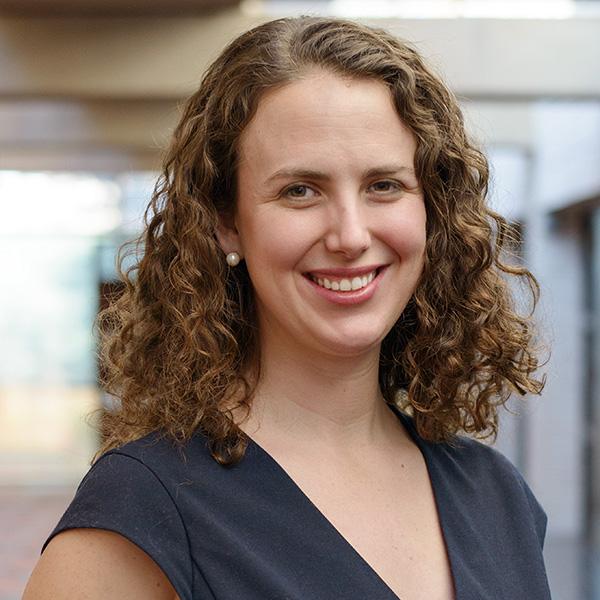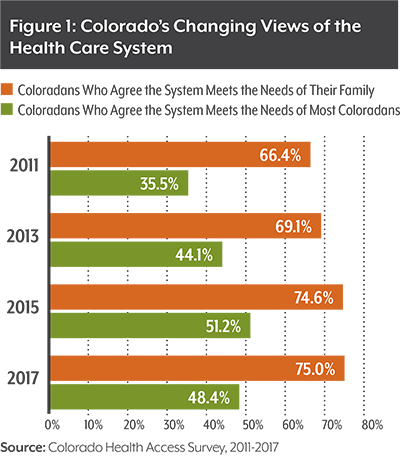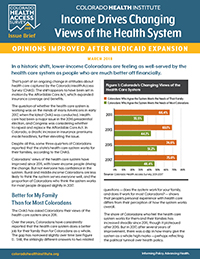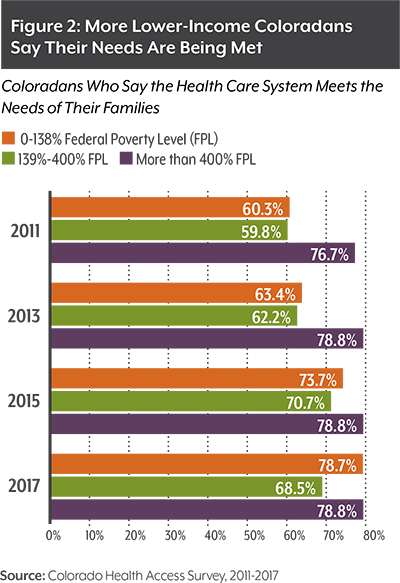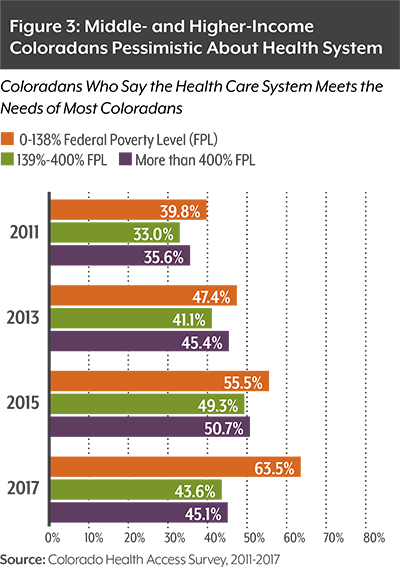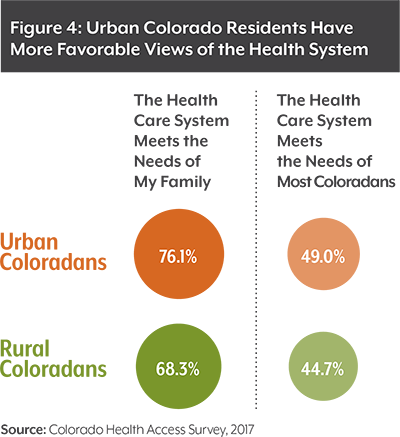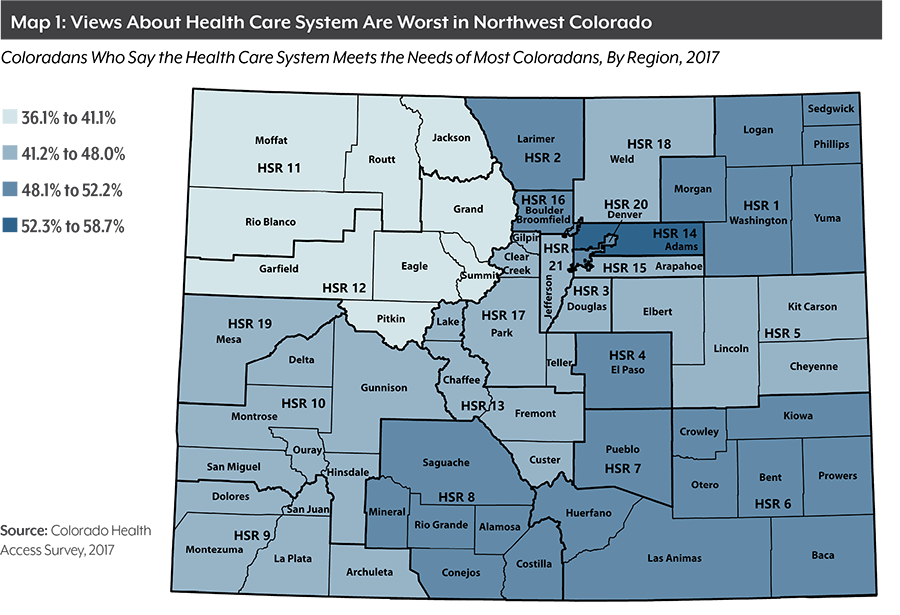In a historic shift, lower-income Coloradans are feeling as well-served by the health care system as people who are much better off financially.
That’s part of an ongoing change in attitudes about health care captured by the Colorado Health Access Survey (CHAS). The shift appears to have been set in motion by the Affordable Care Act, which expanded insurance coverage and benefits.
The question of whether the health care system is working was on the minds of many Americans in early 2017, when the latest CHAS was conducted. Health care had been a major issue in the 2016 presidential election, and Congress was considering whether to repeal and replace the Affordable Care Act. In Colorado, a drastic increase in insurance premiums made headlines, further elevating the issue.
Despite all this, some three-quarters of Coloradans reported that the state’s health care system works for their families, according to the CHAS.
Coloradans’ views of the health care system have improved since 2011, with lower-income people driving the change. But not everyone has confidence in the system. Rural and middle-income Coloradans are less likely to think the system serves everyone well, and the proportion of Coloradans who think the system works for most people dropped slightly in 2017.


